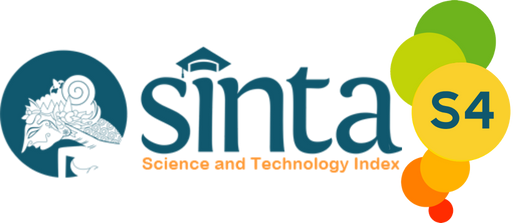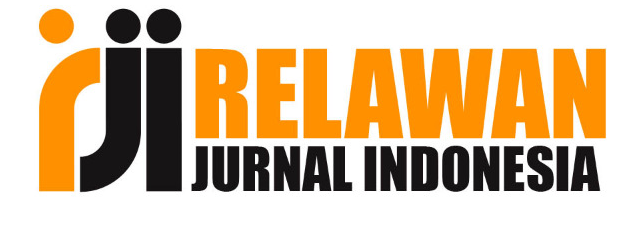Transformasi Ekonomi Digital dan Kinerja UMKM: Analisis Pengaruh Digitalisasi Akuntansi Terpadu
Digital Economic Transformation and MSME Performance: An Analysis of the Impact of Integrated Accounting Digitalization
DOI:
https://doi.org/10.32939/dhb.v6i2.5791Keywords:
Digital Accounting System, MSME Performance, Technology Acceptance Model, Resource-Based ViewAbstract
Purpose: This study aims to analyze the effect of implementing an integrated digital accounting system on the performance of Micro, Small, and Medium Enterprises (MSMEs) in Palembang City.
Design/Methodology/Approach: This research employs a quantitative approach, with data collected through structured questionnaires distributed to 100 MSME actors. The analysis was conducted using the Partial Least Squares Structural Equation Modeling (PLS-SEM) method with the assistance of SmartPLS 4.0 software.
Findings: The results reveal that the implementation of a digital accounting system has a positive and significant effect on performance, where 87% of the variation in MSME performance can be explained by the adoption of the digital accounting system, while the remaining variation is influenced by factors outside the model.
Implications: The adoption of digital accounting can serve as a crucial strategy to enhance MSME competitiveness. From a policy perspective, government support is needed in the form of digital infrastructure provision, literacy programs, and technology-based accounting training.
Downloads
References
(OECD), O. for E. C. and D. (2021). Digitalisation and SMEs: Policy brief on enhancing the digital transformation of small and medium enterprises. OECD Publishing. https://www.oecd.org/industry/smes/digitalisation-smes.htm
Abdel-Rahim, H., Hales, J., & Stevens, D. E. (2022). How Far Will Managers Go to Look Like a Good Steward? An Examination of Preferences for Trustworthiness and Honesty in Managerial Reporting†. Contemporary Accounting Research, 39(2), 1023–1053. https://doi.org/10.1111/1911-3846.12746
Abdelmalek, H., Benachour, A., Tarhlissia, L., & Adjal, A. (2024). The Role of SMEs in the Economy: Analyzing the Financial Performance of Algerian SMEs. Accounting and Finance, 3(105), 154–164. https://doi.org/10.33146/2307-9878-2024-3(105)-154-164
Agbodjo, S., Toumi, K., & Hussainey, K. (2020). Accounting Standards and Value Relevance of Accounting Information: A Comparative Analysis Between Islamic, Conventional and Hybrid Banks. Journal of Applied Accounting Research, 22(1), 168–193. https://doi.org/10.1108/jaar-05-2020-0090
Ahmed, H. M., El-Halaby, S., & Albitar, K. (2022). Board Governance and Audit Report Lag in the Light of Big Data Adoption: The Case of Egypt. International Journal of Accounting and Information Management, 31(1), 148–169. https://doi.org/10.1108/ijaim-04-2022-0088
Amalia, R. F., & Nurussama, N. (2018). Analisis Hubungan Norma Subjektif Terhadap Minat Pengusaha UMKM Untuk Membuat Laporan Keuangan Berbasis SAK ETAP Dengan Kemampuan Akuntansi Sebagai Variabel Moderasi. Jesya (Jurnal Ekonomi & Ekonomi Syariah), 2(1), 9–19. https://doi.org/10.36778/jesya.v2i1.27
Andika, A., Jennifer, J., Huang, J. C., & Sebastian, J. C. (2021). Analysis of Digital Marketing Adoption in Indonesian Micro, Small, and Medium Enterprises. Jurnal Manajemen Bisnis, 18(3), 308–328. https://doi.org/10.38043/jmb.v18i3.3173
Atika, A. (2023). The Effect of Digital Marketing and Knowledge Management on the Marketing Sustainability of MSMEs in Indonesia. The Eastasouth Management and Business, 2(01), 83–92. https://doi.org/10.58812/esmb.v2i01.141
Ayyagari, M., Juarros, P., Pería, M. S. M., & Singh, S. (2021). Access to Finance and Job Growth: Firm-Level Evidence Across Developing Countries. Review of Finance, 25(5), 1473–1496. https://doi.org/10.1093/rof/rfab003
Baiod, W., & Hussain, M. M. (2024). The Impact and Adoption of Emerging Technologies on Accounting: Perceptions of Canadian Companies. International Journal of Accounting and Information Management, 32(4), 557–592. https://doi.org/10.1108/ijaim-05-2023-0123
Barney, J. B. (1991). Firm resources and sustained competitive advantage. Journal of Management, 17(1), 99–120. https://doi.org/10.1177/014920639101700108
Beck, T., Degryse, H., Haas, R. D., & Horen, N. v. (2018). When Arm’s Length Is Too Far: Relationship Banking Over the Credit Cycle. Journal of Financial Economics, 127(1), 174–196. https://doi.org/10.1016/j.jfineco.2017.11.007
Bhattacharyya, A., Rahman, M. L., & Wright, S. (2023). Improving Small and Medium‐size Enterprise Performance: Does Working Capital Management Enhance the Effectiveness of Financial Inclusion? Accounting and Finance, 63(4), 3943–3969. https://doi.org/10.1111/acfi.13081
Bills, K. L., Hayne, C., Stein, S. E., & Hatfield, R. C. (2020). Collaborating With Competitors: How Do Small Firm Accounting Associations and Networks Successfully Manage Coopetitive Tensions?*. Contemporary Accounting Research, 38(1), 545–585. https://doi.org/10.1111/1911-3846.12625
Buchetti, B., Parbonetti, A., & Pugliese, A. (2022). Covid-19, Corporate Survival and Public Policy: The Role of Accounting Information and Regulation in the Wake of a Systemic Crisis. Journal of Accounting and Public Policy, 41(1), 106919. https://doi.org/10.1016/j.jaccpubpol.2021.106919
Chen, W., & Srinivasan, S. (2023). Going Digital: Implications for Firm Value and Performance. Review of Accounting Studies, 29(2), 1619–1665. https://doi.org/10.1007/s11142-023-09753-0
Cockcroft, S., & Russell, M. (2018). Big Data Opportunities for Accounting and Finance Practice and Research. Australian Accounting Review, 28(3), 323–333. https://doi.org/10.1111/auar.12218
Dakhli, A. (2021). The Impact of Corporate Social Responsibility on Firm Financial Performance: Does Audit Quality Matter? Journal of Applied Accounting Research, 23(5), 950–976. https://doi.org/10.1108/jaar-06-2021-0150
Davis, F. D. (1989). Perceived usefulness, perceived ease of use, and user acceptance of information technology. MIS Quarterly, 13(3), 319–340. https://doi.org/10.2307/249008
Desiana., Salsabila. R., Sarmigi. E. (2025). Unlocking Real Sector Growth through Sukuk: Regulatory Challenges and Developmental Impacts in Indonesia. Al-Iqtishad: Jurnal Ilmu Ekonomi Syariah, 17(1).https://doi.org/10.15408/aiq.v17i1.44906
Farhan, M. T., Eryanto, H., & Saptono, A. (2022). Pengaruh Literasi Digital Dan Orientasi Kewirausahaan Terhadap Kinerja Usaha Umkm. Transekonomika Akuntansi Bisnis Dan Keuangan, 2(6), 35–48. https://doi.org/10.55047/transekonomika.v2i6.265
Fishbein, M., & Ajzen, I. (1975). Belief, attitude, intention and behavior: An introduction to theory and research. Addison-Wesley.
Franke, F., & Hiebl, M. R. W. (2022). Big Data and Decision Quality: The Role of Management Accountants’ Data Analytics Skills. International Journal of Accounting and Information Management, 31(1), 93–127. https://doi.org/10.1108/ijaim-12-2021-0246
Gao, J., Siddik, A. B., Abbas, S. K., Hamayun, M., Masukujjaman, M., & Alam, S. S. (2023). Impact of E-Commerce and Digital Marketing Adoption on the Financial and Sustainability Performance of MSMEs During the COVID-19 Pandemic: An Empirical Study. Sustainability, 15(2), 1594. https://doi.org/10.3390/su15021594
Gazzola, P., Amelio, S., Papagiannis, F., & Michaelides, Z. (2021). Sustainability Reporting Practices and Their Social Impact to NGO Funding in Italy. Critical Perspectives on Accounting, 79(1), 1–12. https://doi.org/10.1016/j.cpa.2019.04.006
Grant, R. M. (1991). The resource-based theory of competitive advantage: Implications for strategy formulation. California Management Review, 33(3), 114–135. https://doi.org/10.2307/41166664
Hair, J. F., Hult, G. T. M., Ringle, C. M., & Sarstedt, M. (2022). A Primer on Partial Least Squares Structural Equation Modeling (PLS-SEM) (3rd ed.). Sage Publications.
Haryono, G., Sarmigi, E., & Siswadhi, F. (2024). Analysis of tourist satisfaction in realising returns and recommending rural tourism destinations in Jambi province. JPPI (Jurnal Penelitian Pendidikan Indonesia), 10(4), 145-154.
Henseler, J., Hubona, G. and Ray, P. . (2016). Using PLS path modeling in new technology research: updated guidelines. Industrial Management and Data Systems, 116(1), 2–20.
Hilliard, T., & Neidermeyer, P. E. (2018). Market Reaction to the Transitory Effects of IFRS: An Examination of Disaggregated Measures. International Journal of Accounting and Information Management, 26(1), 2–37. https://doi.org/10.1108/ijaim-04-2016-0045
Hoozée, S., & Mitchell, F. (2017). Who Influences the Design of Management Accounting Systems? An Exploratory Study. Australian Accounting Review, 28(3), 374–390. https://doi.org/10.1111/auar.12193
Kadous, K., & Zhou, Y. (2018). How Does Intrinsic Motivation Improve Auditor Judgment in Complex Audit Tasks? Contemporary Accounting Research, 36(1), 108–131. https://doi.org/10.1111/1911-3846.12431
Kobets, D. (2023). Development of Accounting: Challenges and Prospects in the Context of European Integration. Accounting and Finance, 99(1), 31–37. https://doi.org/10.33146/2307-9878-2023-1(99)-31-37
Koong, K. S., Bai, S., Tejinder, S., & Morris, C. (2019). Advancements and Forecasts of Electronic Tax Return and Informational Filings in the US. International Journal of Accounting and Information Management, 27(2), 352–371. https://doi.org/10.1108/ijaim-06-2018-0072
Lehenchuk, S., Horodysky, M., & Maistrenko, N. (2021). Protection of Accounting Data in the Conditions of Using Internet of Things: Problems and Prospects of Accounting Digitalization. Accounting and Finance, 91(1), 12–19. https://doi.org/10.33146/2307-9878-2021-1(91)-12-19
Li, S. X., Merchant, K. A., & Wang, F. Y. (2023). Metric Intensity and Innovation Dependency. Contemporary Accounting Research, 40(2), 1487–1513. https://doi.org/10.1111/1911-3846.12851
Lim, H.-J., & Mali, D. (2022). An Analysis of the Effect of Temporary/Permanent Contracts on Firm Efficiency Performance: Evidence From South Korea. Journal of Applied Accounting Research, 24(1), 149–169. https://doi.org/10.1108/jaar-08-2021-0227
Mabenge, B. K., Ngorora-Madzimure, G. P., & Chinoda, T. (2020). Financial management practices and performance of SMEs in South Africa. Academy of Entrepreneurship Journal, 26(3), 1–12.
Peteraf, M. A. (1993). The cornerstones of competitive advantage: A resource-based view. Strategic Management Journal, 14(3), 179–191. https://doi.org/10.1002/smj.4250140303
Plaisance, G. (2023). Accountability in French Non-Profit Organizations: Between paradox and Complexity. Journal of Applied Accounting Research, 25(3), 420–447. https://doi.org/10.1108/jaar-01-2023-0006
Pradnyani, G. A. A. I., Dewi, N. K. A. J. P., & Sukmawati, P. S. (2024). CLOUD COMPUTING AND HR COMPETENCY TOWARDS THE PERFORMANCE OF MSMEs IN DENPASAR. Icobuss, 107–115. https://doi.org/10.24034/icobuss.v4i1.485
Putra, D. K., & Hartono, B. (2022). The Effect of Digital Accounting Implementation on the Financial Performance of MSMEs in Indonesia. Jurnal Akuntansi Multiparadigma, 13(2), 301–314. https://doi.org/10.18202/jamal.2022.08.13201
Qur’ani, B., & Anshar, M. A. (2023). Analisis Faktor-Faktor Pengembangan UMKM Dengan Transformasi Digital Dalam Pertahanan Ekonomi Pasca COVID-19. Jemma (Journal of Economic Management and Accounting), 6(1), 12. https://doi.org/10.35914/jemma.v6i1.1603
Rahi, A. B. M. F., Johansson, J., & Lions, C. (2023). Reinventing the Wheel? Factors Influencing Relationship: Links Between Sustainability and Financial Performance. European Evidence. International Journal of Accounting and Information Management, 32(1), 147–177. https://doi.org/10.1108/ijaim-02-2023-0023
Rahman, M., & Ziru, R. A. (2022). Digital literacy and audit quality: The mediating role of system adoption. Journal of Accounting and Finance in Emerging Economies, 8(1), 155–168. https://doi.org/10.26710/jafee.v8i1.2103
Rîndașu, S.-M., Topor, D. I., & Feleagă, L. (2023). The Evolution of Management Accountants’ Digital Skills in Industry 4.0: A Qualitative Approach. Accounting and Finance, 99(1), 38–48. https://doi.org/10.33146/2307-9878-2023-1(99)-38-48
Saji, T. G. (2021). Asymmetric Financial Reporting Quality and Firm Size: Conditional Evidence From an Emerging Market. Journal of Applied Accounting Research, 23(5), 977–1004. https://doi.org/10.1108/jaar-10-2021-0264
Salem, R. I. A., Ezeani, E., Gerged, A. M., Usman, M., & Alqatamin, R. M. (2020). Does the Quality of Voluntary Disclosure Constrain Earnings Management in Emerging Economies? Evidence From Middle Eastern and North African Banks. International Journal of Accounting and Information Management, 29(1), 91–126. https://doi.org/10.1108/ijaim-07-2020-0109
Sarmigi, E., Rahayu, S., & Arum, E. D. P. (2025). Against Fraud: How Religious-Based Values Accounting Work. TSAQAFAH, 21(1), 139-158.
Sarmigi, E., Rahayu, S., & Arum, E. D. P., Wijaya, R. (2025). Causes And Prevention Of Fraud In Management Of Village Funds: Literature Review. Procedia Environmental Science, Engineering and Management, 12(2), 301-312.
Sarstedt, M., Ringle, C. M., & Hair, J. F. (2020). Treating unobserved heterogeneity in PLS-SEM: A multi-method approach. In Data Analysis Perspectives Journal (Vol. 5, pp. 28–40).
Shevchuk, K., Kuzyk, N., & Boyarova, O. (2024). Accounting and Taxation of E-Commerce: Realities and Challenges. Accounting and Finance, 106(4), 140–149. https://doi.org/10.33146/2307-9878-2024-4(106)-140-149
Soriya, S., & Rastogi, P. (2022). The Impact of Integrated Reporting on Financial Performance in India: A Panel Data Analysis. Journal of Applied Accounting Research, 24(1), 199–216. https://doi.org/10.1108/jaar-10-2021-0271
Susanti, R., & Wicaksono, A. (2021). Pengaruh Digitalisasi Akuntansi terhadap Efisiensi dan Kinerja UMKM. Jurnal Riset Akuntansi Kontemporer, 13(1), 45–53.
Troshani, I., & Rowbottom, N. (2021). Digital Corporate Reporting: Research Developments and Implications. Australian Accounting Review, 31(3), 213–232. https://doi.org/10.1111/auar.12334
Tuan, L. A., & Rajagopal. (2022). Financial performance of small enterprises in Southeast Asia: Indicators and determinants. International Journal of Business and Society, 23(2), 345–361.
Umar, H. (2022). Metode Penelitian untuk Skripsi dan Tesis Bisnis (Revisi). Rajawali Pers.
Venkatesh, V., & Bala, H. (2008). Technology Acceptance Model 3 and a research agenda on interventions. Decision Sciences, 39(2), 273–315. https://doi.org/10.1111/j.1540-5915.2008.00192.x
Venkatesh, V., & Davis, F. D. (2000). A theoretical extension of the Technology Acceptance Model: Four longitudinal field studies. Management Science, 46(2), 186–204. https://doi.org/10.1287/mnsc.46.2.186.11926
Venkatesh, V., Morris, M. G., Davis, G. B., & Davis, F. D. (2003). User acceptance of information technology: Toward a unified view. MIS Quarterly, 27(3), 425–478. https://doi.org/10.2307/30036540
Wernerfelt, B. (1984). A Resource-Based View of the Firm. Strategic Management Journal, 5(2), 171–180. https://doi.org/10.1002/smj.4250050207
Wibowo, A., & Haryanto, J. T. (2021). Pengaruh manajemen keuangan terhadap kinerja UMKM di masa pandemi COVID-19. Jurnal Ekonomi Dan Bisnis, 10(1), 25–34.
Wu, L., & Xu, L. (2019). Venture Capital Certification of Small and Medium‐sized Enterprises Towards Banks: Evidence From China. Accounting and Finance, 60(2), 1601–1633. https://doi.org/10.1111/acfi.12489
Wu, W., Le, C., Shi, Y., & Alkaraan, F. (2024). The Influence of Financial Flexibility on Firm Performance: The Moderating Effects of Investment Efficiency and Investment Scale. Journal of Applied Accounting Research, 25(5), 1183–1202. https://doi.org/10.1108/jaar-07-2023-0192
Wulandari, M. C., Putro, T. R., & Prasetyani, D. (2023). Digital Adaptation to Performance of SMEs in Surakarta City, Indonesia. International Journal of Multicultural and Multireligious Understanding, 10(5), 238. https://doi.org/10.18415/ijmmu.v10i5.4606
Zureich, J. (2023). The (Un)Controllability Principle: The Benefits of Holding Employees Accountable for Uncontrollable Factors. Journal of Accounting Research, 61(2), 653–690. https://doi.org/10.1111/1475-679x.12467
Кучеренко, Т., Аніщенко, Г. Ю., Melnyk, L., & Glinkowska, B. (2021). Accounting Information System Under the Digital Transformation. Accounting and Finance, 94(4), 23–29. https://doi.org/10.33146/2307-9878-2021-4(94)-23-29
Downloads
Published
How to Cite
Issue
Section
License
Copyright (c) 2025 Fransisca Dyah Anggraini, Khairunnisa Khairunnisa

This work is licensed under a Creative Commons Attribution 4.0 International License.













